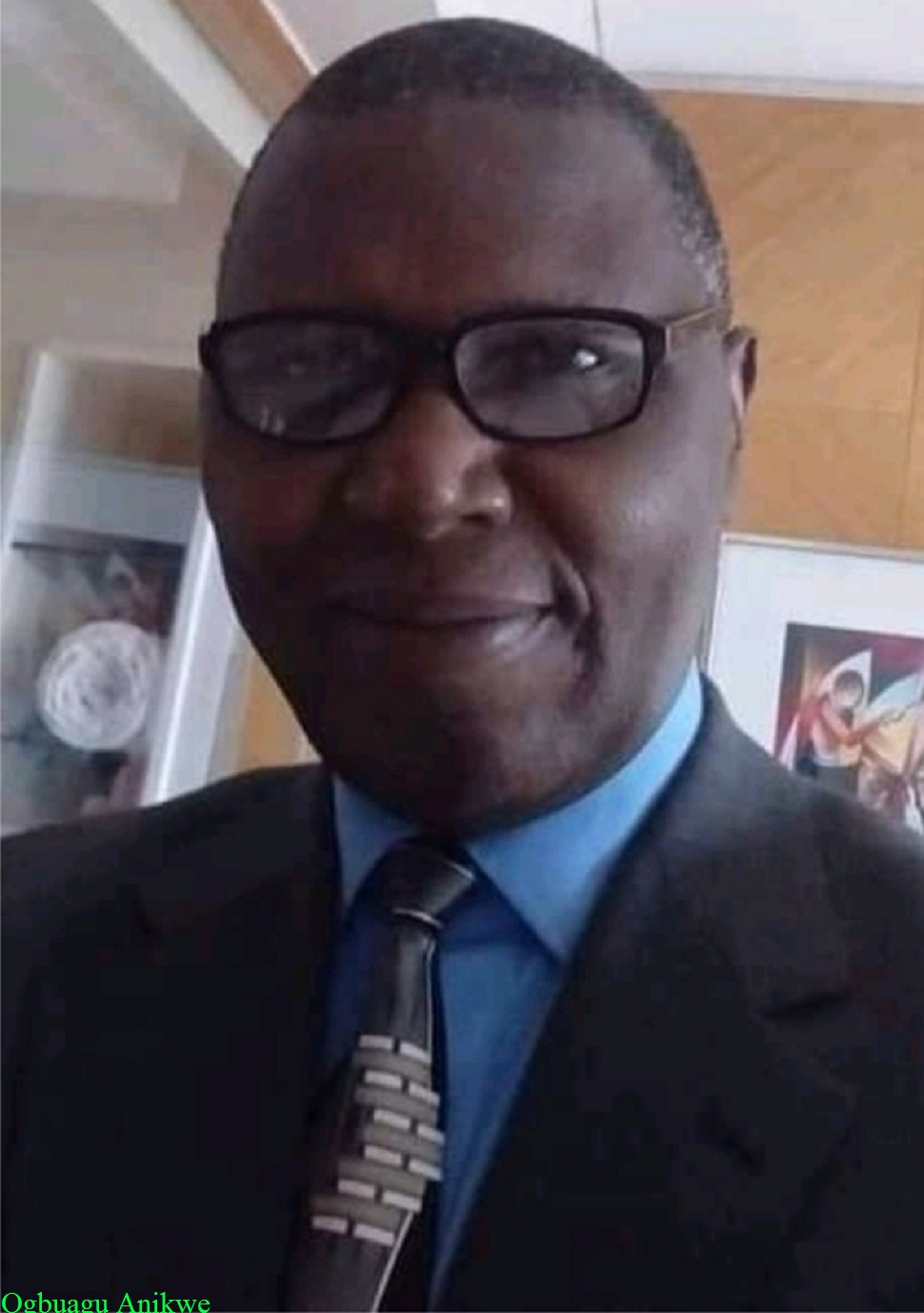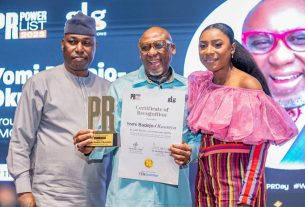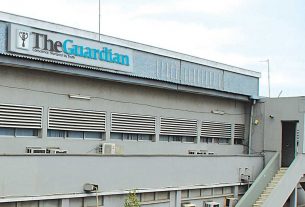- A piece of Silver in the Smithy’s Forge
By Yinka Fabowale
I reported to the News Editor, who to my delight I discovered penned a favourite column of mine that told of the experiences of a metropolitan reporter on his beat round in a pithy and yet lighthearted style in The Guardian p.m. sister paper, Guardian Express. However, the excitement at meeting the crack reporter and prose stylist, Ogbuagu Anikwe, was dampened by a foreboding of gawking failure and humiliation awaiting me on the new beat.
The new posting betrayed the gap in my professional training and experience up till then which, for the first few months in The Guardian newsroom made colleagues to question my competence and, I confess, shook my self-confidence.
The point was hard news reporting was not my forte! I was a man in love with words that danced like beautiful maidens with beads strewn around their waists, singing with bewitching voices in a symmetry of lines on the boulevard of creativity! Not for the fun of it, but to catch the eye and be the choice of a suitor- prince!
Although I was no stranger to the art of disrupting chronology and exploiting its value in literary enterprise, I found the time-worn Inverted Pyramid format rule of news narration in sequential order of relative importance the hardest task ever. I was and have remained more a disciple of Tom Wolf and the rest of the New Journalism school gang?
To worsen matters, I’d not been exposed to other beats other than the Governor’s Office and arts/entertainment to sufficiently develop news-gathering skills, build robust data base of news sources and contacts – all crucial to producing the kind of competitive, exclusive stories reporters here daily turned in. Since I wrote for a weekly newspaper, the only time I ever had to write news was when asked to extract stories from press releases or cover a breaking news that involved the governor on our production day. Even that I found arduous and distasteful.
I also thought the news language drab, trite and hackneyed. A deprecation of the chaste beauty and lyricism of good work of prose. It was not until I read a front page lead of The Guardian announcing Gen. Ibrahim Babangida-led military government’s creation of a two-party system out of the diverse political tendencies, among other landmark decisions, that I was cured of this false view. Profuse with facts, rich in language and enigmatic in presentation, the masterpiece written by Mr. Kusa, the Editor himself, was a testament and advertisement of the professional standards and audacity all The Guardian’s alone.
Babangida was said to have been both shocked and impressed by the newspaper’s ability to penetrate the Armed Forces Ruling Council (AFRC) which showed in the accuracy of the divulged facts of its secret deliberations. I would have loved to reproduce the excerpts of the report, a copy of which proudly welcomed visitors to The Guardian Correspondent’s office in Ibadan. Unfortunately, Google couldn’t help; and as I met it there, I had to leave the brilliant piece behind in the office to continue serving as our banner and inspire successive generations of Correspondents who may serve in Oyo State.
But, I digress…Back in the Lagos Newsroom, it was becoming clear I might not be able to keep my new job for long. Day in, day out, I walked into the newsroom with trepidation because I had no story to submit. The News Editor welcomed me and listened to my excuses each time with apparent understanding but an inscrutable look on his face. My apparent lack of productivity began to bother some of the editors who had probably been told I came in as a high calibre reporter.
While Ben T (Tomoloju) and Kayode Komolafe (KK) would look with concern, Jide Ogundele, who headed the Business Desk rather heckled and threw barbs. The Business Editor, whom I thought had no business with my own business in The Guardian, not being directly under his supervision, was to drag me before the Editor one day, complaining that I was yet to imprint any signature, if I had any, on the newspaper. Before he could even finish, Mr. Kusa said, oh yes, he had been of the same mind and was actually about to have administration write me to justify my employment.
With that disclosure, I lost the nerve to press for an apparent mistake in a clause in my appointment letter designating me as a ‘Reporter’ instead of Senior Correspondent, a post on which I left the Lagos Horizon and for which I’d applied in The Guardian, and only because it was The Guardian. In my professional self –estimation, some other newspapers would only be too glad to place me on an even higher level. I’d pointed out the ‘error’ in a memo immediately on resuming, to which I got a terse reply from management (read Kusa) saying my observation had been noted and was being looked into. When I followed up on the matter with the Editor himself, his advice was – there was no problem about adjusting my rank as long as I quickly proved my mettle. I needed no telling which between the office’s diplomatic response and Kusa’s blunt retort I should reckon with.
I got another shocker one day when I met the Editor working in the Newsroom having abandoned his office as he sometimes did. He was busy on some copies when I walked in from one of the usual fruitless wanderings. Seething with rage and impatience, he growled: “This man, where are your stories?”.“Stories?” I thought. The man did not even ask if I had only one story! I timidly began to mutter excuses but stopped in my tracks as I saw sparks and a deafening tornado boomed: “Wo, won le ba ‘yan wa ise ni o, won ki i ba ‘yan se o!” (Look, one can only help you get a job, it’s your responsibility to keep the job!) Upset, and unable to continue with his job, the Editor gathered his papers and stormed out in a rage back to his office!
It was the peak of production and the scene distracted reporters who paused and looked up momentarily from their different desks to see who the culprit was.……………………………………………The motion around me was intense and dizzying. There was no letup in the spate of embarrassment the reporters around and those in outstations exposed me to with their industry and resourcefulness. They dominated the front and back pages of the newspaper hitting them with one celebrated story after another, even as they filled the specialized pages produced by their various desks with quality reports, while I struggled to make page 3 or had my story reduced to briefs!
I felt like I was in a concert hall swelling with a melodious symphony. But I enjoyed neither the music nor the applause the appreciative audience showered on the performing orchestra of which I was a member. I felt a fraud sharing in the rapture and reward of the labour of the ensemble as I’d played no part in its success, my voice hoarse and flute held in my quivering hands.
I was raised by a mother who taught us, her children, always to reach for the stars. That mandate I’d proudly kept all through my educational career, shining among the top in the class and never fading into the anonymity of the crowd? But, Florence Abeke Fabowale obviously did not reckon there would be such challenge as this newspaper called The Guardian or she would have warned me to gird my loins well! “Dear Lord, if I cannot be the lead vocalist or even bass guitarist, grant me the grace to lend at least the critical note that would give the melody its full value,” I supplicated.
In vain I tried to convince the Editor to return me to the Features Desk and watch if he would not see a positive change. It turned out that the man had, after considering my work history and ties with the Lagos State Government concluded that I would be more useful if let loose to ferret exclusive information from Alausa and other government institutions, as did Oguntimehin, who, after he was withdrawn from the beat, served as Editor of Guardian Express before he left to take up a corporate affairs job in a financial institution.
To be continued





